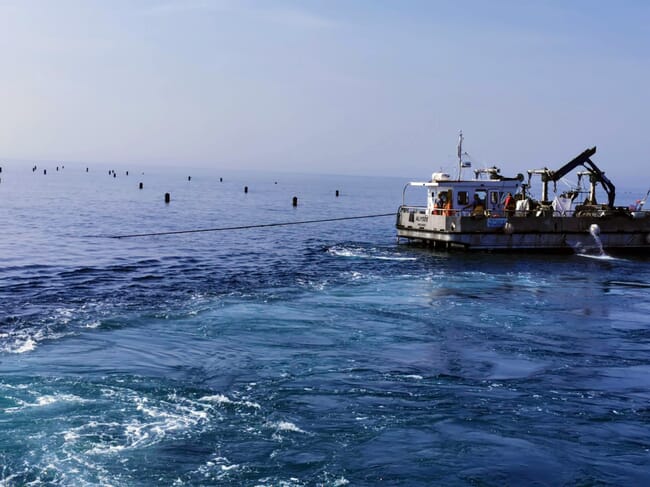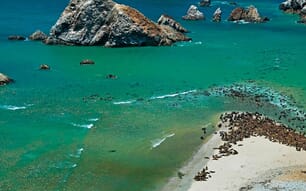
The treaty is a key enforcement mechanism for the recent 30x30 pledges made by countries at the UN Biodiversity Conference in December 2022. © Offshore Shellfish
The new agreement sets out a legal framework for ocean areas that fall outside of national jurisdictions. The treaty, which had been help up for nearly a decade over disagreements on funding and fishing rights, was reached on 4 March after nearly 38 hours of talks at the UN headquarters in New York City. It will increase the total ocean area under international protection, helping to safeguard marine life from overfishing and shipping traffic. The treaty will also help countries coordinate climate change mitigation efforts.
The last international agreement on ocean protection – the UN Convention on the Law of the Sea – was signed in 1982. That treaty defined the area called the “high seas”, or international waters where all countries could fish, ship and conduct research. Though this represented a major advancement in international policy, only 1.2 percent of those waters were protected from environmental degradation.
The protected areas that are established in the treaty have limits on the number of shipping lanes, the degree of fishing activity and restrictions on activities like deep sea mining. The treaty is a key enforcement mechanism for the recent 30x30 pledges made by countries at the UN Biodiversity Conference in December 2022. During that summit, countries agreed to protect one third of the land and sea by 2030. This treaty creates a legal mechanism to establish marine protected areas (MPAs) on the high seas – making it more feasible for countries to meet the ambitious biodiversity target.
According to reporting in The BBC and The Guardian, key issues during treaty negotiations focused on the sharing of marine genetic resources – the biological material from marine plants and animals that could yield useful compounds like pharmaceuticals or be utilised in industrial processes. As it stands now, no one knows how much ocean resources are worth, making it difficult to determine how they should be shared fairly.
Minna Epps, director of the IUCN Ocean team, explained that wealthier nations currently have the resources and funding to explore the deep ocean, but poorer countries wanted to ensure that ocean benefits are shared equally among treaty signatories.
Others challenges during the negotiations included the procedure for creating MPAs and determining the methodology for environmental impact studies for planned activities on the high seas.
The Guardian reports that the European Union pledged €40 million ($42 million) to facilitate the ratification of the treaty and its early implementation as an attempt to build trust between rich and poor countries.
Stéphane Dujarric, spokesman for the Secretary-General commended delegates for finalising the treaty text – saying that it would ensure the conservation and sustainable use of marine biological diversity of areas beyond national jurisdiction.
“This breakthrough – which covers nearly two-thirds of the ocean – marks the culmination of nearly two decades of work and builds on the legacy of the United Nations Convention on the Law of the Sea. This action is a victory for multilateralism and for global efforts to counter the destructive trends facing ocean health, now and for generations to come.
It is crucial for addressing the triple planetary crisis of climate change, biodiversity loss and pollution. It is also vital for achieving ocean-related goals and targets of the 2030 Agenda for Sustainable Development, and the Kunming-Montreal Global Biodiversity Framework. The Secretary-General commends all parties for their ambition, flexibility and perseverance,” he concluded.




